20 Foods That Can Contribute To Clogged Arteries

Clogged arteries, or atherosclerosis, develop when fatty deposits build up along artery walls, restricting blood flow and increasing the risk of heart disease, stroke, and other serious conditions. Diet plays a key role. While no single food causes artery blockages on its own, regularly consuming certain foods high in saturated fat, trans fat, sodium, and added sugar can significantly contribute to the problem. Here are 20 foods that may contribute to clogged arteries if eaten frequently or in large quantities:
1. Processed Meats

Processed meats may evoke nostalgic breakfast memories, but their health impact tells a different story. Laden with sodium, saturated fat, and preservatives, these meats can stir inflammation and pave the way for arterial plaque buildup. Imagine the sizzling crackle of bacon or the spicy aroma of sausage; sounding tempting, yet a diet high in these can usher in health woes. If frequently indulged, they can create an unfavorable setting for heart health. The preservatives and additives, often overlooked, further escalate the risks. Remember, moderation is key to enjoying these flavors without compromising well-being.
2. Fried Foods

Crispy, golden, and oh so tempting, fried foods like French fries and doughnuts often find a frequent spot on our plates. Yet, it’s not just crunch we’re biting into; trans fats and oxidized oils lurk within, potentially wreaking havoc on our vessels. While the delightful aroma might draw you in, frequent consumption can lead to trouble. Imagine arteries crying out for relief. It’s essential to balance cravings with health-conscious choices, perhaps opting for baked alternatives. In moderation, these treats can be enjoyed without the looming worry of cardiovascular harm.
3. Packaged Snack Foods
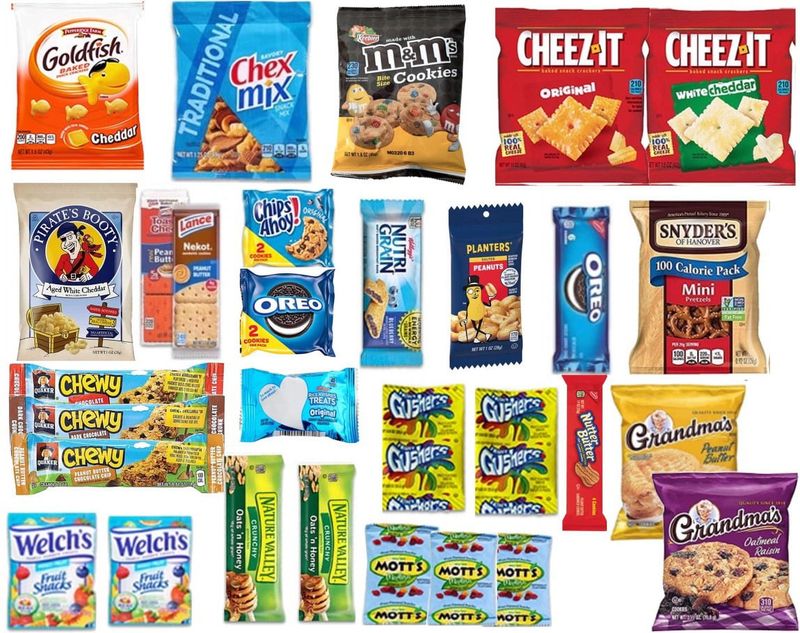
Brightly colored bags of chips or cheese puffs might seem like a quick snack fix, but what’s inside tells another tale. Brimming with refined carbs, sodium, and trans fats, these snacks can stealthily contribute to the narrowing of arteries. Picture the satisfying crunch, often irresistible, yet a frequent indulgence may cost more than anticipated. Health-wise, these snacks could lead to unfavorable outcomes. When reaching for a munch, considering wholesome options might be wise. While occasional treats are a delight, consistency in healthier snacking choices can make a difference.
4. Commercial Baked Goods

The allure of pastries, cookies, and muffins is undeniable. These commercial delights, however, often come with a hidden health price. Laden with partially hydrogenated oils and excessive sugar, they can contribute to the development of atherosclerosis. Each bite, rich and sweet, might mask the underlying health risks. Visualize indulging with the knowledge of potential consequences. It’s vital to enjoy these treats sparingly and with mindfulness. Opting for homemade versions or healthier bakery options can satisfy cravings without compromising heart health. Balance is the sweet spot.
5. Fast Food Burgers

Fast food burgers, a go-to for many, offer more than just taste—they bring along high levels of saturated fat, sodium, and processed additives. These components could stress the cardiovascular system over time. Picture the convenience and flavor, yet it’s crucial to remember the hidden costs. Regular consumption might lead to poor heart health. Alternatives, like grilled or homemade versions, could provide a satisfying yet healthier option. While the occasional indulgence is fine, understanding the health implications can guide better choices.
6. White Bread and Refined Grains

White bread and refined grains might make breakfast preparation easy, but their impact on health isn’t as smooth. Known to spike blood sugar quickly, they can increase inflammation and promote fatty deposits in the arteries. The simplicity of a sandwich often hides these health implications. Consider diversifying with whole grains, which offer more nutrition and fewer risks. While these refined options provide short-term energy, the long-term effects on heart health are worth considering. A balanced diet can significantly impact well-being positively.
7. Ice Cream

Few treats compare to the cold, creamy delight of ice cream on a hot day. However, beyond the sweet satisfaction lies a mix of saturated fat and added sugars that might promote fat accumulation in arterial walls. The indulgence is real, yet the health risks are too. Balancing these sweets with more nutritious alternatives can provide enjoyment without adverse effects. Being mindful of portion sizes and frequency ensures cravings are met responsibly, keeping heart health intact. Occasional indulgence is delightful, but awareness is key to health.
8. Butter

Butter, a kitchen staple, often brings richness to dishes but also carries high levels of saturated fat. Regular, excessive consumption, especially in baked or processed foods, might lead to health issues, including clogged arteries. Imagine the creamy texture enhancing flavors yet silently impacting heart health. Alternatives like olive oil can provide similar culinary satisfaction with fewer risks. While butter can elevate meals, moderation is essential to maintaining well-being. Knowing when to indulge and when to substitute can make a significant difference in diet quality.
9. Heavy Cream and Full-Fat Dairy
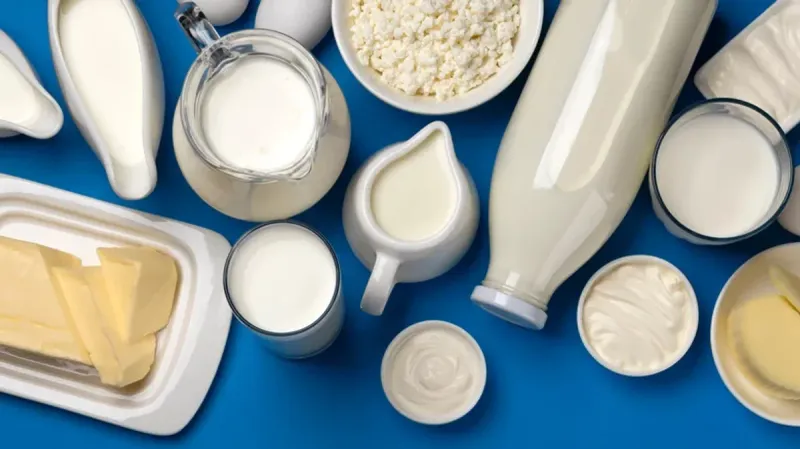
Heavy cream and full-fat dairy products, like cheese and whole milk, offer a luxurious texture and flavor but can contribute to higher cholesterol levels if consumed in excess. Each creamy sip or bite might seem indulgent, yet the heart might disagree over time. Exploring lower-fat alternatives can provide similar satisfaction with reduced health risks. Moderation and balance in dairy choices can ensure enjoyment doesn’t compromise well-being. A mindful approach to dairy intake can keep both taste and health in harmony, providing a path to sustained wellness.
10. Sugary Breakfast Cereals
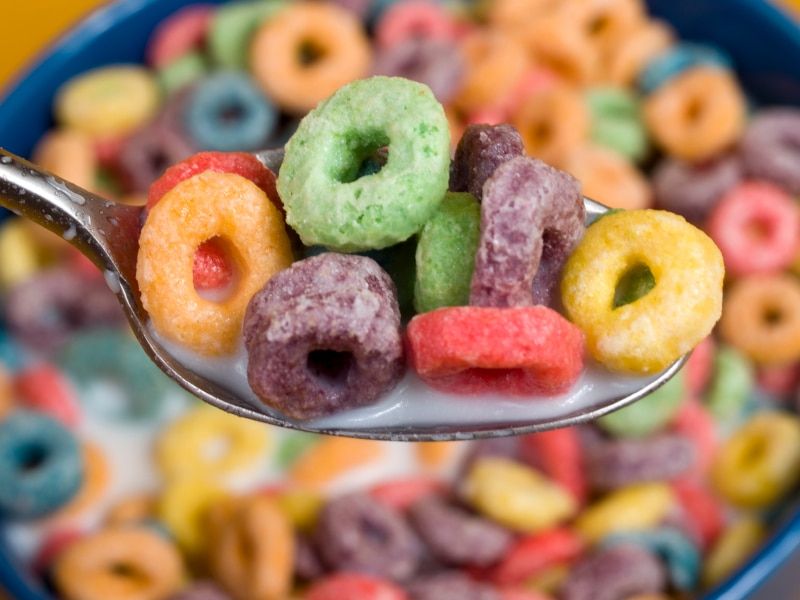
Sugary breakfast cereals, often vibrantly marketed, can be a morning favorite but mask potential health pitfalls. Refinement and low fiber content, combined with high sugar levels, pose risks to heart health. Each spoonful might bring sweetness, yet frequent consumption can foster adverse effects. Opting for whole grain options ensures a more balanced start to the day. Awareness of labeling can guide better choices, aligning taste with health. An informed approach allows cereals to remain part of breakfast without the hidden costs, promoting better overall nutrition.
11. Soda and Sugary Beverages

Soda and sugary beverages often quench thirst and satisfy sweet cravings. However, they’re high in added sugars, which can promote insulin resistance, inflammation, and arterial plaque formation. The fizz might be refreshing, yet the long-term implications aren’t as pleasant. Substituting with water or unsweetened drinks can keep hydration healthy. Awareness of the hidden sugars in these beverages is essential for maintaining heart health. While occasional indulgence is acceptable, making informed choices ensures sustainability in well-being.
12. Energy Drinks

Energy drinks, packed with caffeine and sugar, often promise a quick vitality boost. However, this combination can exert stress on the heart and blood vessels. The immediate energy jolt might seem appealing, yet the health impact is worth pondering. Opting for natural energy sources, like fruits and nuts, can provide a more stable boost. It’s crucial to understand the risks associated with frequent consumption, ensuring energy levels are maintained without sacrifice to health. Balance and moderation remain key in navigating energy needs responsibly.
13. Margarine (Partially Hydrogenated)

Margarine, especially partially hydrogenated types, often serves as a butter alternative. However, it may contain trans fats, which are strongly linked to clogged arteries and heart disease. The smooth spreadability might be convenient, yet it’s vital to assess its health implications. Exploring margarine options can lead to choices with healthier profiles, such as those free from trans fats. Understanding labels and ingredients ensures dietary choices support overall health goals. While margarine can be part of the diet, informed selection is essential.
14. Pizza (Especially Processed or Fast Food)

Pizza, a universal favorite, often comes loaded with sodium, saturated fat, and refined carbs, particularly when topped with processed meats and extra cheese. Each slice might bring immediate satisfaction, yet the long-term effects on heart health could be concerning. Balancing indulgence with homemade versions allows for better control over ingredients, ensuring heart-friendly options. Understanding the implications of frequent fast food pizza consumption can guide healthier dining choices without losing the essence of a beloved dish. Moderation is key to maintaining both joy and health.
15. Frozen Meals
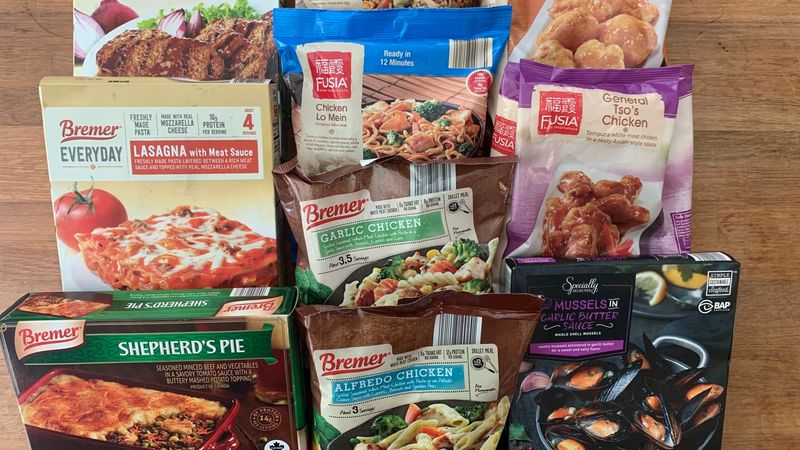
Frozen meals offer convenience, yet often come with high sodium and preservative levels, which may increase blood pressure and vascular stress. The ease of preparation contrasts with the potential health risks associated with frequent consumption. Exploring fresh alternatives or crafting homemade frozen meals can provide similar convenience with enhanced nutritional profiles. Awareness and choice empower individuals to enjoy quick meals without compromise to heart health. In moderation, these meals retain their place, supporting lifestyle needs while prioritizing wellness.
16. Ramen Noodles (Instant Varieties)
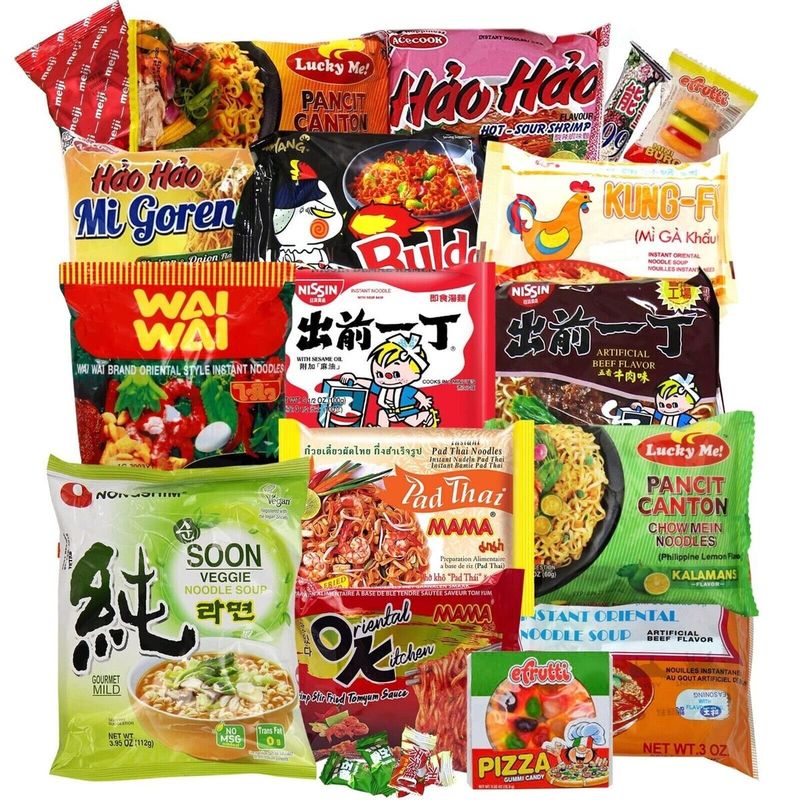
Instant ramen noodles, a staple for many, often contain high sodium levels and artificial additives that strain arteries over time. Though comforting and easy to prepare, the health implications shouldn’t be overlooked. Exploring ways to enhance ramen with fresh ingredients can elevate both taste and nutrition. Understanding the content of seasoning packets can guide better choices, ensuring enjoyment without the hidden risks. Balance and creativity allow ramen to remain a beloved dish without compromising heart health, fostering a mindful yet satisfying dining experience.
17. Red Meat (In Excess)

Red meat, including beef, lamb, and pork, offers rich flavor but contains saturated fat that might be associated with higher cholesterol levels and plaque buildup. The robust taste can be enjoyed responsibly, with moderation. Considering portion sizes and frequency ensures that red meat remains part of a balanced diet without compromising cardiovascular health. Exploring leaner cuts or plant-based alternatives can diversify the diet, promoting heart health. Understanding the potential impact of excessive red meat consumption guides informed dietary decisions, balancing taste with well-being.
18. Sweetened Condensed Milk

Sweetened condensed milk, a luscious addition to desserts and beverages, is high in added sugar and saturated fat. Each creamy pour might enhance flavor, yet its health implications are significant over time. Exploring alternatives or moderating use can ensure flavors are savored without the hidden health costs. Understanding its role in recipes allows for creative solutions, balancing taste with nutrition. Informed choices enable enjoyment of this ingredient while protecting heart health. Awareness and moderation keep sweetened condensed milk as a delightful yet responsible addition to culinary creations.
19. Coffee Creamers (Non-Dairy, Flavored Types)
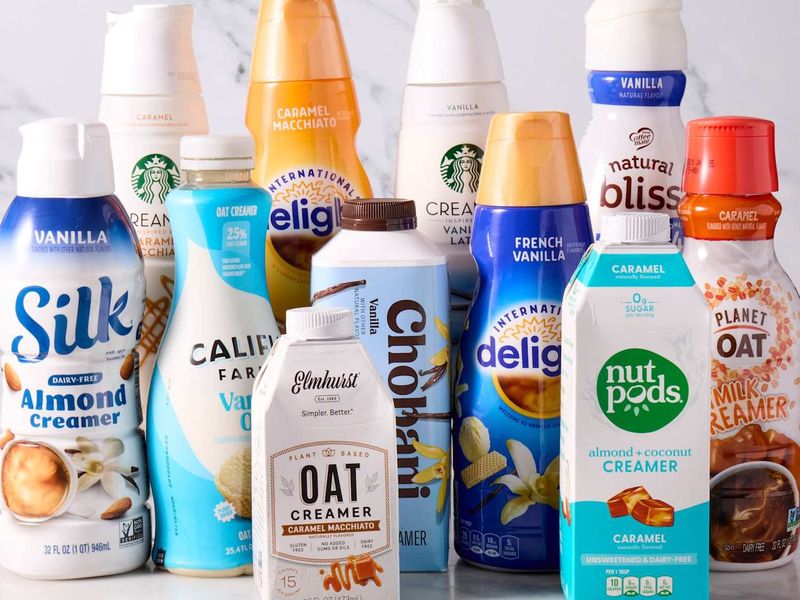
Non-dairy, flavored coffee creamers offer a convenient way to enhance coffee, yet often contain hydrogenated oils and sugar substitutes that may negatively impact cardiovascular health. The smooth, flavored addition is appealing, but awareness of its content ensures better choices. Exploring natural creamers or unsweetened options provides similar enjoyment without the hidden risks. Understanding labels can guide informed decisions, aligning taste with health. These adjustments allow coffee to remain a personal ritual, fostering both satisfaction and wellness. Balance and awareness are crucial in coffee creamer selections.
20. Processed Cheese Products
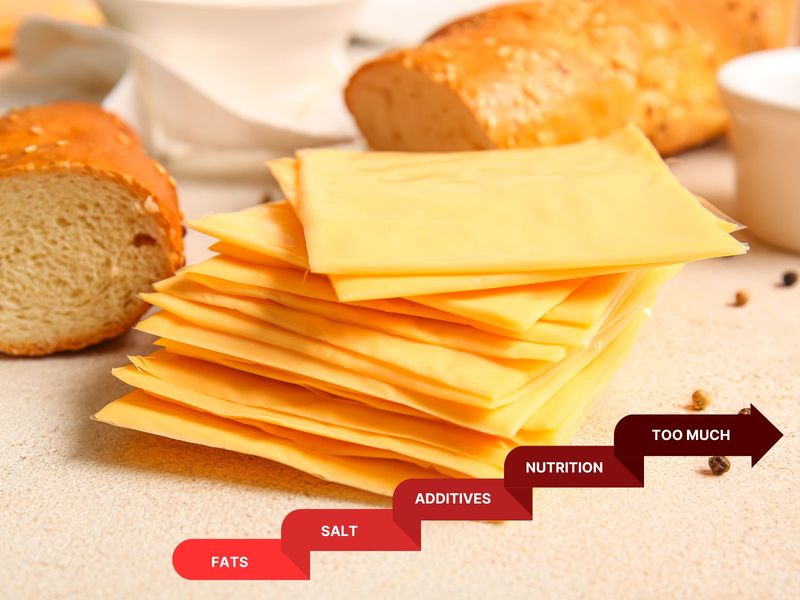
Processed cheese products, like spreads and slices, offer convenience but are often high in saturated fat and sodium, contributing to arterial stiffness. The creamy texture can be enjoyed with awareness of potential health impacts. Exploring natural cheese options allows for similar culinary enjoyment with reduced risks. Understanding ingredients and moderation in consumption ensure these products can be part of a balanced diet without compromising heart health. Mindful choices in cheese selections promote both taste and well-being, maintaining a satisfying dietary experience while protecting cardiovascular health.
